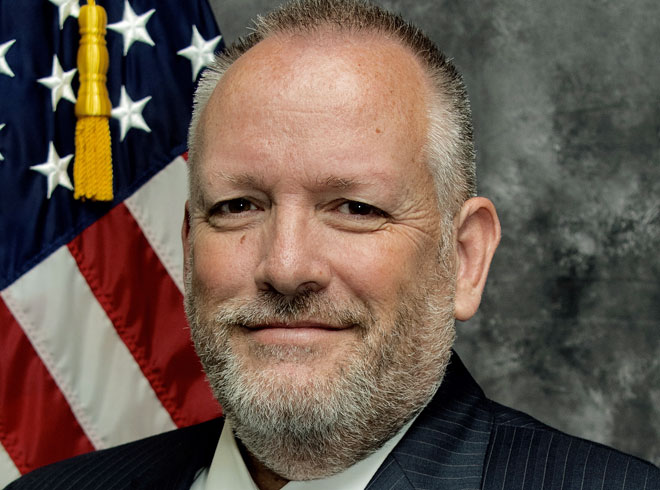
The Drug Enforcement Administration (DEA) Los Angeles Field Division has today, announced Operation Faux Pharmacy, a large-scale, multi-pronged operation aimed at attacking the opioid epidemic by targeting rogue pharmacies throughout southern California, Hawaii and Nevada.
DEA investigations over the last year identified as many as 26 pharmacies in these areas that may have operated outside the bounds of legitimate medicine.
The United States has been increasingly devastated by opioid abuse, created in large part by the over-prescribing of potent opioids.
Across the country, approximately 11.8 million Americans misuse prescription opioids each year, which contributes to the estimated 65,000 drug overdose deaths in the United States.
A majority of these deaths were related to opioids, including heroin, illicit fentanyl, and prescription drugs such as hydrocodone and oxycodone.
(Prescription opioids can be addictive and dangerous. It only takes a little to lose a lot. Courtesy of the Centers for Disease Control and Prevention (CDC) and YouTube)
“DEA is fighting the opioid crisis on multiple levels, using every resource available to identify reckless doctors and rogue businesses that fuel addiction in our neighborhoods and communities,” said DEA Acting Administrator Robert W. Patterson.
“We will continue to identify and hold accountable the most significant drug threats, using every tool at our disposal – administrative, civil and criminal – to fight the diversion of controlled substances.”
DEA and other law enforcement partners utilize a host of tools and resources available to identify some of the most egregious violators of the Controlled Substances Act.
The Controlled Substances Act (CSA) places all substances which were in some manner regulated under existing federal law into one of five schedules.
This placement is based upon the substance’s medical use, potential for abuse, and safety or dependence liability.
Click here to see an Alphabetical listing of Controlled Substances
CONTROLLING DRUGS OR OTHER SUBSTANCES THROUGH FORMAL SCHEDULING

The CSA also provides a mechanism for substances to be controlled (added to or transferred between schedules) or decontrolled (removed from control).
The procedure for these actions is found in Section 201 of the Act (21U.S.C. §811).
Proceedings to add, delete, or change the schedule of a drug or other substance may be initiated by the Drug Enforcement Administration (DEA), the Department of Health and Human Services (HHS), or by petition from any interested party, including:
- The manufacturer of a drug
- A medical society or association
- A pharmacy association
- A public interest group concerned with drug abuse
- A state or local government agency
- An individual citizen
In determining into which schedule a drug or other substance should be placed, or whether a substance should be decontrolled or rescheduled, certain factors are required to be considered.
These factors are listed in Section 201 (c), [21 U.S.C. § 811 (c)] of the CSA as follows:
- Its actual or relative potential for abuse.
- Scientific evidence of its pharmacological effect, if known.
- The state of current scientific knowledge regarding the drug or other substance.
- Its history and current pattern of abuse.
- The scope, duration, and significance of abuse.
- What, if any, risk there is to the public health.
- Its psychic or physiological dependence liability.
- Whether the substance is an immediate precursor of a substance already controlled under this subchapter.
(Some people might think prescription opioids are safer than alcohol or illegal drugs, but the truth is they carry serious risks and side effects. Talk with your doctor about your concerns and make informed decisions about pain management together. Courtesy of the Centers for Disease Control and Prevention (CDC) and YouTube)
As part of the Operation Faux Pharmacy initiative, DEA special agents, diversion investigators, and intelligence analysts examined data that manufacturers and distributors report to DEA, Prescription Drug Monitoring Program information, and Health and Human Services data to determine those most likely to be operating as drug traffickers disguised as legitimate pharmacies.
26 pharmacies were identified as potential violators of the Controlled Substances Act as a result of investigations triggered by data that was exhaustively compared and analyzed with previous administrative or criminal violations from previous, similar cases.
Common indicators include pharmacies that:
- Filled exceptionally high numbers of oxycodone prescriptions
- Excessive or frequent opioid purchases
- Multiple customers with identical addresses
- Or customers traveling extreme distances to specific pharmacies despite access to more convenient options
The DEA partnered with federal, state, and local law enforcement partners as part of this initiative.
To date, Operation Faux Pharmacy has seized close to 600,000 dosage units of scheduled drugs.
The investigation is ongoing and violators of the Controlled Substances Act may face administrative, civil, and criminal penalties.
The mission of the DEA is to enforce the controlled substances laws and regulations of the United States and bring to the criminal and civil justice system of the United States, or any other competent jurisdiction, those organizations and principal members of organizations, involved in the growing, manufacture, or distribution of controlled substances appearing in or destined for illicit traffic in the United States; and to recommend and support non-enforcement programs aimed at reducing the availability of illicit controlled substances on the domestic and international markets.
To Learn More, go to https://www.dea.gov/druginfo/csa.shtml.
DEA: Big Pharma Settles US Opioid Drug Probe for $35M (Learn More, Video)
















